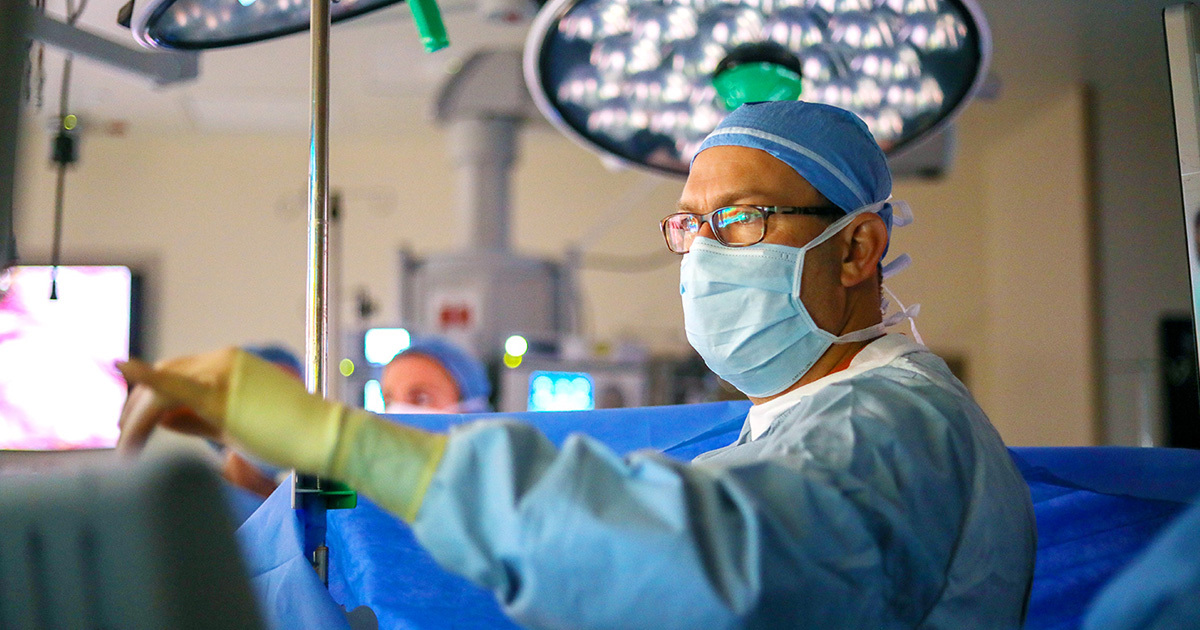About Hiatal Hernias
The diaphragm helps with breathing and keeps the stomach in place. When the muscle around the hiatus weakens, part of the stomach can slip upward into the chest.
Types of Hiatal Hernias:
- Small hiatal hernias: Often do not cause symptoms and may not require treatment.
- Larger hiatal hernias (greater than 5 cm): Can cause complications and sometimes require surgery. Surgery is the only way to repair a hiatal hernia.
Causes of Hiatal Hernias
<br>Hiatal hernias may be linked to:
- Age-related changes in the diaphragm
- Being born with a large hiatus
- Injury or prior surgery to the area
- Increased pressure on the abdomen from:
- Persistent coughing
- Heavy lifting or straining
- Vomiting
- Straining during bowel movements
Symptoms of Hiatal Hernias
Small hiatal hernias can contribute to heartburn or acid reflux, or they may cause no symptoms at all.
Larger hiatal hernias may cause:
- Heartburn or acid reflux
- Chest or abdominal pain
- Difficulty swallowing (dysphagia)
- Regurgitation of food or liquid
- Feeling full quickly after eating
- Indigestion
- Dry cough or shortness of breath
- Tooth decay from acid exposure
- Vomiting blood or passing black stools (a sign of gastrointestinal bleeding)
Risk Factors for Hiatal Hernias
Hiatal hernias are more common in people over the age of 50 but can occur at any age.
Other risk factors include:
- Obesity
- Pregnancy
- Smoking
Diagnosing Hiatal Hernias
<br>Doctors confirm hiatal hernias using imaging tests:
- Barium swallow (esophagogram): You drink a chalky liquid that coats your upper digestive tract, making it visible on X-ray.
- Upper endoscopy: A thin, flexible tube with a camera is guided down the throat to examine the esophagus and stomach.
Treating Hiatal Hernias
<br>Treatment depends on the size of the hernia and your symptoms:
- Small hernias: Often managed with lifestyle changes (e.g., avoiding large meals, elevating the head while sleeping, losing weight) and medications to reduce acid reflux.
- Large hernias: May require surgery, usually performed laparoscopically (through several small incisions). Specialists in digestive health and foregut conditions often achieve the best outcomes.
Care Team Approach
At UT Health Austin, we take a multidisciplinary approach to your care. This means you will benefit from the expertise of multiple specialists across a variety of disciplines caring for you in one place to avoid having to schedule multiple appointments with providers at locations all over the city. The Texas Center for Esophageal and Foregut Surgery care team includes fellowship-trained foregut surgeons, physician assistants, nurse practitioners, dietitians, social workers, and more who work together with gastroenterologists and other specialists to restore digestive and esophageal function and improve your overall well-being.
We collaborate with our colleagues at the Dell Medical School and The University of Texas at Austin to utilize the latest research, diagnostic, and treatment techniques, allowing us to offer state-of-the-art, evidence-based treatment options for foregut conditions. Advanced imaging and lab testing are also available on-site if needed.
Learn More About Your Care Team

Texas Center for Esophageal and Foregut Surgery
Health Transformation Building, 8th Floor
1601 Trinity Street, Bldg. A, Austin, Texas 78712
1-512-495-GERD (1-512-495-4373)
Get Directions